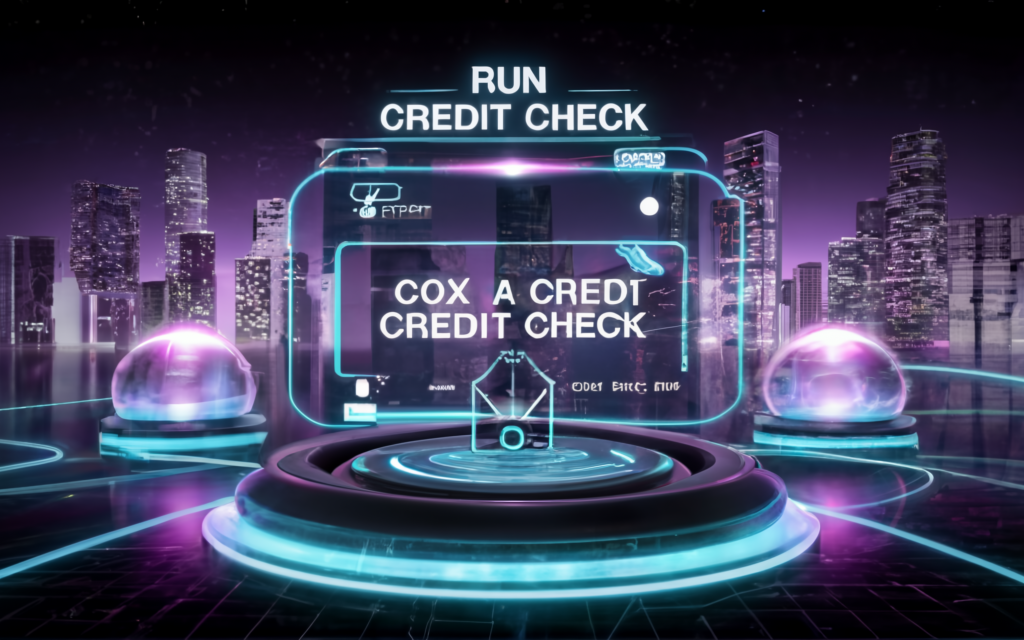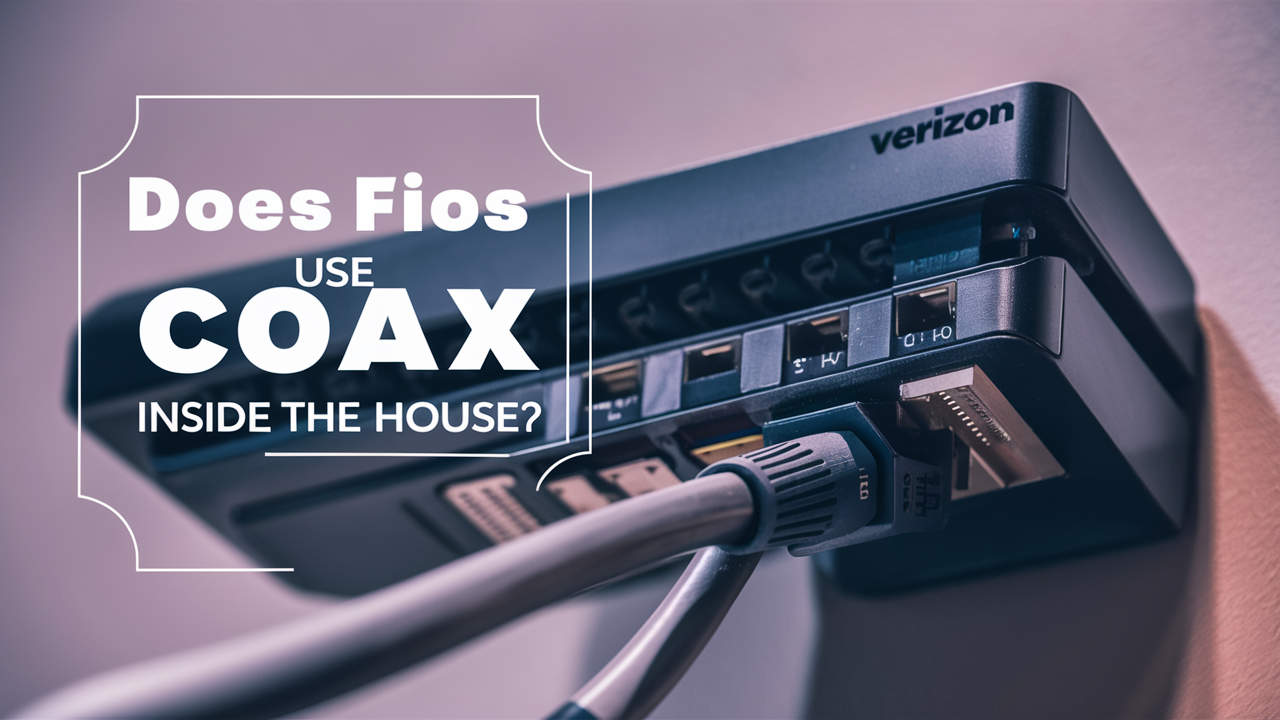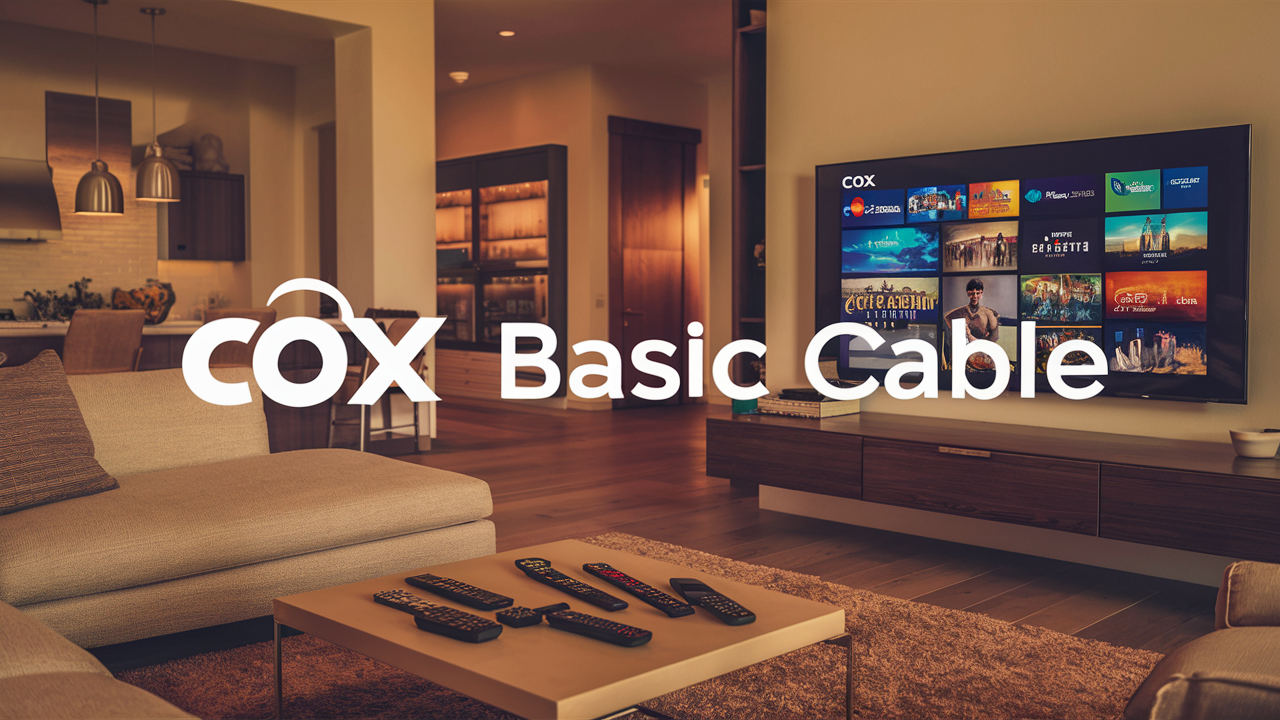Does Cox Run a Credit Check?

Does Cox run a credit check for new customers? Yes, Cox Communications typically performs a credit check to assess your financial responsibility before activating new internet, TV, or phone services. This guide explains why, what factors influence the check, and how to prepare for it in 2025.
Understanding Cox's Credit Check Policy
In the competitive landscape of telecommunications and internet service providers, companies like Cox Communications employ various strategies to mitigate risk and ensure reliable service delivery. One of the most common practices is the implementation of a credit check for new customers. This process is not unique to Cox; it's a standard procedure across many subscription-based services, including mobile carriers, utility companies, and even some rental agreements. As of 2025, the digital age has only intensified the reliance on robust credit assessment to manage customer accounts and prevent potential financial losses. Cox, a major player in providing internet, cable television, and home phone services, utilizes credit checks to gauge the financial trustworthiness of individuals seeking to establish a new service account. This article will delve deep into the intricacies of Cox's credit check policy, explaining why it's performed, what factors are considered, and how prospective customers can navigate this process, especially if they have concerns about their credit history. Understanding this policy is crucial for a smooth and successful service activation, avoiding unexpected hurdles or deposit requirements.
Why Does Cox Run a Credit Check?
The primary reason Cox, like other service providers, conducts a credit check is to assess the risk associated with extending credit. When you sign up for Cox services, you are essentially entering into a contract where you agree to pay a recurring fee for a service that is provided upfront. This is a form of unsecured credit. Without a credit check, Cox would have no way of knowing if a new customer is likely to pay their bills on time or, conversely, if they have a history of defaulting on payments.
Risk Mitigation and Fraud Prevention
Cox faces financial exposure from the moment a service is activated. Equipment is provided, installation may occur, and services are rendered. If a customer fails to pay, Cox incurs losses. A credit check helps them identify applicants who have a higher probability of non-payment. This allows Cox to make informed decisions about whether to approve the service, and if so, under what terms. For instance, customers with lower credit scores might be required to pay a security deposit upfront to offset the perceived risk. Furthermore, credit checks can assist in preventing fraudulent applications. By verifying identity and financial history, Cox can reduce the likelihood of individuals signing up for services with no intention of paying, or using stolen identities.
Determining Service Terms and Deposits
The outcome of the credit check directly influences the terms of service offered to a new customer. A strong credit history typically results in straightforward service activation with no deposit required. However, for individuals with less-than-perfect credit, Cox may require a security deposit. This deposit acts as a financial buffer for Cox, covering potential unpaid bills. The amount of the deposit can vary based on the credit score and the services being ordered. In some cases, a very low credit score might lead to service denial altogether, or the requirement of a substantial deposit that makes the service financially unfeasible for the applicant.
Operational Efficiency
By standardizing the credit assessment process, Cox can streamline the customer onboarding experience. Instead of manually reviewing each applicant's financial situation, a credit check provides a quick, data-driven evaluation. This efficiency is vital for a large company managing millions of customer accounts. It allows customer service representatives to quickly determine eligibility and necessary requirements, leading to faster service activation and improved customer satisfaction for those who qualify easily.
What Happens During a Cox Credit Check in 2025?
When you apply for Cox services, the company will typically request your Social Security number (SSN) and date of birth. These pieces of information are essential for accurately identifying you and accessing your credit report from one or more of the major credit bureaus (Experian, Equifax, and TransUnion). Cox will then use a credit scoring model to evaluate your creditworthiness. This process is usually automated and happens very quickly, often within minutes of submitting your application.
Types of Credit Checks
Cox generally performs a "soft" credit inquiry when you initially check for service availability or get a quote. This type of inquiry does not affect your credit score and is primarily for informational purposes. However, when you formally apply for service and provide your SSN, Cox will conduct a "hard" credit inquiry. This hard inquiry is what can potentially impact your credit score, although the effect is usually minor and temporary, especially if you have a good credit history. Multiple hard inquiries within a short period can signal to lenders that you are seeking a lot of credit, which might be viewed negatively.
Credit Score Thresholds
While Cox does not publicly disclose the exact credit score thresholds they use, industry standards suggest that a credit score of 600 or above is generally considered acceptable for most service providers. Scores between 600 and 650 might still require a deposit, while scores below 600 could lead to service denial or a higher deposit. Customers with scores above 650-700 are typically approved without any deposit requirements. It's important to remember that Cox might use a proprietary scoring system that takes into account more than just the FICO score, such as payment history with other utility companies. As of 2025, many companies are also exploring alternative data sources for credit assessment, though traditional credit reports remain the primary tool.
Information Reviewed
The credit report Cox reviews will contain information such as:
- Payment History: This is the most critical factor. Late payments, missed payments, and defaults on other credit accounts will be visible.
- Credit Utilization: How much of your available credit you are currently using. High utilization can be a red flag.
- Length of Credit History: A longer history of responsible credit use is generally viewed favorably.
- Credit Mix: Having a variety of credit types (e.g., credit cards, installment loans) can be positive.
- New Credit: Recently opened accounts and numerous recent inquiries.
- Public Records: Bankruptcies, liens, and judgments will significantly impact approval.
Cox may also look at your payment history with other utility and telecom providers, which is often reported to specialized credit bureaus like FactorTrust or CoreLogic. This data provides a more comprehensive view of your payment behavior, especially for individuals with limited traditional credit history.
Factors Influencing Your Cox Credit Score
Your credit score is not a static number; it's a dynamic reflection of your financial habits. Several key factors contribute to the score Cox will see during their credit assessment in 2025. Understanding these elements can help you identify areas for improvement before you apply for service.
Payment History (The Most Important Factor)
This is the single most significant component of your credit score, accounting for roughly 35% of the total. It details whether you pay your bills on time. Late payments, even by a few days, can negatively impact your score. A consistent record of on-time payments is crucial for a good credit standing. This includes not just credit cards and loans, but also utility bills, rent, and any other recurring financial obligations. For Cox, seeing a history of timely payments on similar services is a strong indicator of future reliability.
Credit Utilization Ratio
This factor, making up about 30% of your score, measures how much of your available credit you are using. For example, if you have a credit card with a $10,000 limit and you owe $5,000 on it, your utilization ratio is 50%. Experts generally recommend keeping your credit utilization below 30% for each card and overall. High utilization suggests you might be overextended financially, increasing the risk for lenders and service providers.
Length of Credit History
This accounts for about 15% of your score. It refers to how long your credit accounts have been open and how long it has been since you last used them. A longer credit history generally indicates more experience managing credit responsibly. For instance, having accounts that have been open for 10 or more years is beneficial. If you are new to credit, this factor might be lower initially, but it improves over time with responsible usage.
Credit Mix
This makes up about 10% of your score. It refers to the different types of credit accounts you have, such as credit cards (revolving credit) and mortgages or auto loans (installment loans). Having a mix of credit types can demonstrate that you can manage various forms of debt responsibly. However, this is less critical than payment history or credit utilization.
New Credit
This accounts for the remaining 10% of your score. It looks at how many new accounts you've opened recently and how many hard inquiries you have on your credit report. Opening many new accounts in a short period or having numerous inquiries can indicate increased risk, as it might suggest financial distress or an attempt to take on too much debt quickly. While applying for Cox service will result in one hard inquiry, opening several new credit cards simultaneously could have a more significant negative impact.
Utility Payment History
Beyond the standard FICO score, Cox may also consider your history of paying utility bills (electricity, gas, water, phone, internet). In 2025, specialized credit bureaus that collect this data are becoming increasingly important for service providers. If you have a strong track record of paying these bills on time, even with a lower traditional credit score, it can significantly improve your chances of approval with Cox. Conversely, a history of unpaid utility bills can be a major deterrent.
What if You Have Poor Credit?
Encountering a credit check when you have a low credit score can be daunting. However, it doesn't necessarily mean you'll be denied Cox service. There are several potential outcomes and strategies to consider if your credit history is less than ideal.
Security Deposit Requirement
The most common outcome for individuals with poor credit is being required to pay a security deposit. This deposit, which can range from $50 to $200 or more depending on the services and the severity of the credit issues, serves as collateral for Cox. It helps to mitigate their financial risk. While paying a deposit can be an upfront cost, it often allows you to get the service you need. The good news is that these deposits are typically refundable after a certain period (e.g., 12 months) of consistent, on-time payments. Always confirm the terms and conditions for deposit refunds with Cox.
Service Denial
In cases of very poor credit, such as significant delinquencies, collections, or a history of bankruptcy, Cox may deny the service application altogether. This is a less common outcome but is possible if the perceived risk is too high. If your application is denied, Cox is required by law (under the Fair Credit Reporting Act - FCRA) to provide you with a reason for the denial and the name of the credit reporting agency they used. This information is crucial for understanding why you were denied and what steps you can take to improve your credit.
Co-signer Option
While not always offered by utility and telecom companies, some may allow for a co-signer. If you have a family member or trusted friend with excellent credit who is willing to co-sign your service agreement, this could help you get approved. The co-signer essentially takes on the financial responsibility if you fail to pay. However, this is a significant commitment for the co-signer, as their credit score could be negatively impacted if payments are missed. It's essential to discuss this option with Cox representatives to see if it's a possibility.
Alternative Service Plans
Cox might offer more basic or limited service plans to customers with poor credit, possibly with higher upfront costs or different payment structures. It's worth inquiring about any alternative packages that might be available and less dependent on a strong credit history. These might involve prepaid options or plans with lower bandwidth/channel selections.
Disputing Errors on Your Credit Report
If you believe your credit report contains errors that are negatively impacting your score, you have the right to dispute them with the credit bureaus. Common errors include incorrect personal information, accounts that don't belong to you, or inaccurate late payment notations. Correcting these errors can potentially improve your credit score and increase your chances of approval with Cox. As of 2025, the process for disputing errors is largely online and can be initiated through the websites of Experian, Equifax, and TransUnion.
Preparing for Your Cox Credit Check
Proactive preparation can significantly smooth the process of applying for Cox services, especially if you have concerns about your credit. By taking a few key steps beforehand, you can increase your chances of approval and avoid potential deposit requirements.
1. Obtain and Review Your Credit Reports
The first and most crucial step is to know what Cox will see. You are entitled to a free copy of your credit report from each of the three major credit bureaus (Experian, Equifax, TransUnion) once every 12 months. Visit AnnualCreditReport.com, the only officially sanctioned website for free credit reports. Review these reports thoroughly for any inaccuracies, outdated information, or fraudulent accounts. Note down any negative items that might affect your score.
2. Check Your Credit Score
While your credit report details your credit history, your credit score is a numerical representation of that history. Many credit card companies and financial institutions offer free access to your credit score as a perk to their customers. You can also use various online services, though be cautious of those that require a subscription or offer only a limited-time free trial. Understanding your approximate score will give you a good idea of how Cox's credit check might turn out. Aim for a score of 600 or higher.
3. Dispute Any Errors
If you find any inaccuracies on your credit reports, act immediately to dispute them with the respective credit bureau. This process can take several weeks, so it's best to do this well in advance of applying for Cox service. Correcting errors can lead to an improved credit score, potentially saving you from a deposit or even service denial.
4. Pay Down Credit Card Balances
If your credit utilization ratio is high, focus on paying down your credit card balances before applying. Reducing your debt load, especially on revolving credit lines, can have a positive impact on your credit score. Even a few weeks of focused debt reduction can make a difference.
5. Catch Up on Past-Due Accounts
Ensure all your current accounts are in good standing and that any past-due amounts are paid off. A history of late payments is a significant negative factor. If you have outstanding debts in collections, settling them (even if for less than the full amount, with a "paid in full" notation) can sometimes be beneficial, though the original negative mark will remain on your report for a period.
6. Gather Necessary Information
Have your Social Security number, date of birth, and current address ready. You may also need to provide proof of identity and address, such as a driver's license or utility bill, especially if you have limited credit history or are applying for services that require significant equipment.
Alternatives and Workarounds
If a traditional credit check with Cox presents a barrier, or if you simply wish to explore other options, several alternatives and workarounds exist. These strategies can help you secure internet or TV services without the direct reliance on a credit score.
Prepaid Internet Services
Some providers offer prepaid internet plans. With these plans, you pay for a certain amount of data or a specific period of service in advance. This eliminates the need for a credit check because there is no ongoing credit being extended. While Cox itself may not heavily promote prepaid options for their primary internet services, other providers in your area might. Researching local internet providers can reveal these alternatives. These plans often require you to purchase or rent your modem and router upfront.
Mobile Hotspots and Tethering
If your internet needs are not extremely high or constant, using your smartphone as a mobile hotspot can be a viable temporary solution. Most modern smartphones allow you to share your cellular data connection with other devices. This requires a mobile plan with sufficient data. For consistent use, you might consider a dedicated mobile hotspot device or a smartphone plan with unlimited data. However, be aware that cellular data can be more expensive per gigabyte than traditional home internet and may have speed or data caps.
Community Wi-Fi or Public Access Points
Many public places like libraries, coffee shops, and community centers offer free Wi-Fi access. While not a substitute for reliable home internet, these can be useful for occasional browsing, checking email, or downloading small files. Some municipalities also offer subsidized or free public Wi-Fi in certain areas.
Consider Other Providers
Not all internet service providers have the same credit check policies. Some smaller, regional providers or newer companies might have less stringent requirements or offer alternative plans. It's worth researching other options in your area. For example, some fiber internet providers or fixed wireless providers might have different application processes.
Bundling with Existing Services
If you already have a positive payment history with Cox for another service (e.g., mobile phone service if they offer it in your area, or if you are a long-term customer of a related company that Cox has partnered with), they might be more lenient with a credit check for a new service. Sometimes, demonstrating loyalty or a positive relationship can influence their decision-making process.
Reconsider Service Needs
Evaluate your actual internet usage needs. Do you truly need the highest speed tier? Are all the TV channels in a premium package necessary? Sometimes, opting for a more basic plan can reduce the perceived risk for the provider and potentially lead to easier approval or lower deposit requirements. You can always upgrade later once you've established a positive payment history with Cox.
The Role of Credit Bureaus in 2025
Credit bureaus are the gatekeepers of financial information, compiling detailed records of individuals' borrowing and repayment histories. In 2025, their role remains central to how companies like Cox assess risk. Understanding these bureaus and the data they provide is key to navigating the credit check process.
The Big Three: Experian, Equifax, and TransUnion
These are the primary national credit bureaus in the United States. They collect vast amounts of data from lenders, credit card companies, collection agencies, and public records. When Cox runs a credit check, they typically pull a report from one or more of these bureaus. Each bureau maintains its own database and may have slightly different information or scores, although they generally align.
Specialized Credit Bureaus
Beyond the "Big Three," there are specialized credit bureaus that focus on specific industries. For utility and telecom companies, bureaus like FactorTrust (now part of Experian) and CoreLogic are particularly relevant. These bureaus collect data on utility payments, rent, and other non-traditional credit information. Cox may use these reports in conjunction with traditional credit reports, especially for applicants with thin credit files (limited history with the Big Three). This means that even if your FICO score is low, a strong history of paying utility bills on time, as reported to these specialized bureaus, could still help you get approved.
Credit Scoring Models (FICO and VantageScore)
Credit bureaus provide the raw data, but scoring models interpret this data into a numerical score. The two most common models are FICO (developed by Fair Isaac Corporation) and VantageScore (a joint venture of the three major bureaus). While both models consider similar factors (payment history, credit utilization, etc.), they may weigh them differently, resulting in slightly different scores. Cox likely uses a version of one of these models, possibly customized for their industry, to make approval decisions. As of 2025, FICO 10 and VantageScore 4.0 are among the latest versions, incorporating more advanced analytics.
The Impact of Data Privacy Regulations
In 2025, data privacy is a significant concern. While credit bureaus collect extensive data, regulations like the FCRA govern how this information can be used. Companies like Cox must obtain your consent to pull your credit report and must provide you with specific reasons if they deny service based on that report. Consumers have rights to access their reports, dispute errors, and understand how their data is being used. Be aware that newer data sources are being explored by credit bureaus, including rental payment history and subscription service payments, which could further influence credit assessments in the coming years.
Maximizing Your Chances of Approval
Securing Cox services without unnecessary complications hinges on presenting yourself as a low-risk customer. By implementing a few strategic actions, you can significantly improve your odds of a smooth approval process, potentially avoiding security deposits and other hurdles.
Be Honest and Accurate on Your Application
Ensure all the information you provide on your Cox application is accurate and matches your credit report. Discrepancies in your name, address history, or date of birth can sometimes trigger fraud alerts or lead to application delays. Double-check your SSN and other identifying details before submitting.
Consider a Smaller Package Initially
If you're concerned about your credit, starting with a more basic internet speed or a limited TV channel package can sometimes be beneficial. Lower-tier services may involve less risk for Cox, potentially leading to easier approval or a smaller deposit requirement. You can always upgrade your service later once you've established a positive payment history with them.





